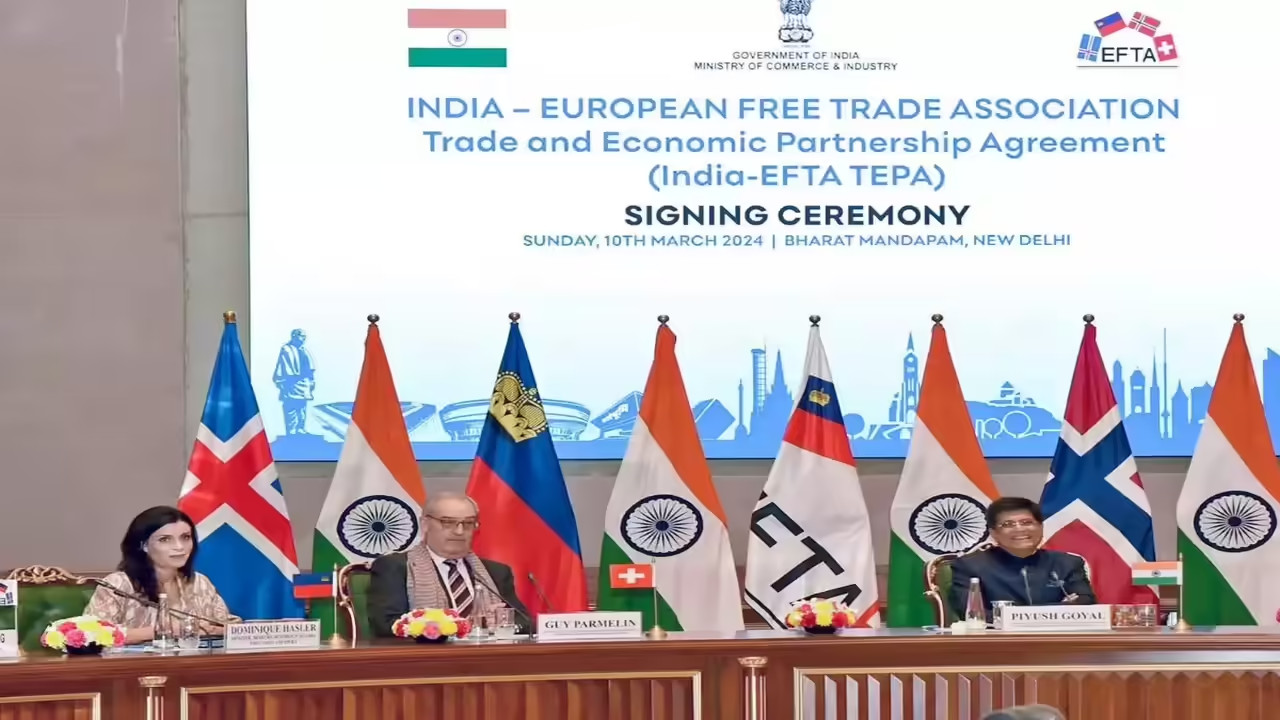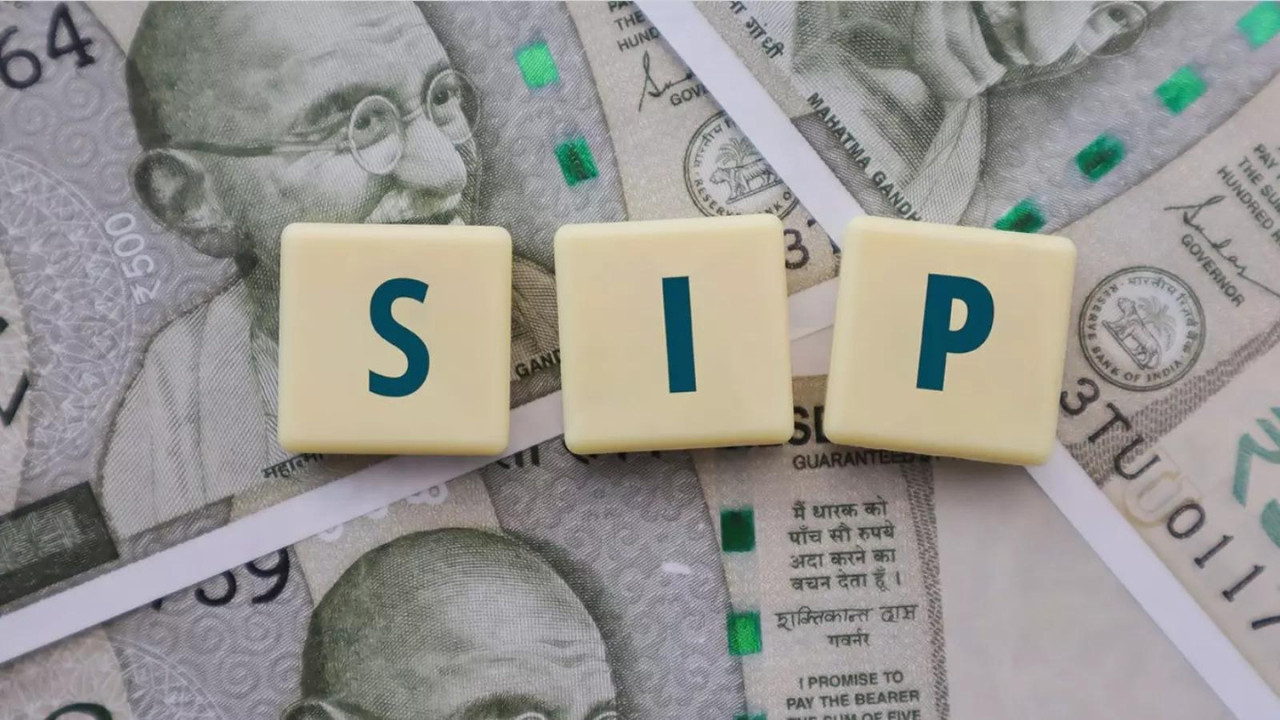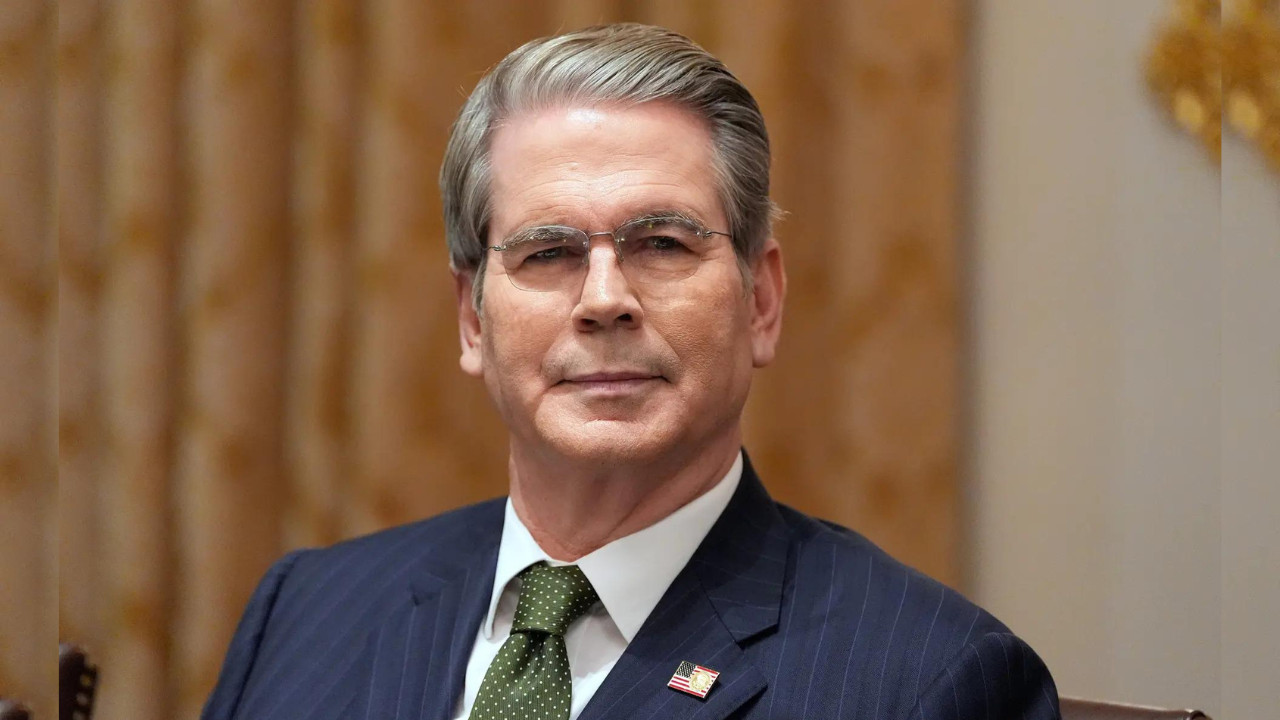Commerce and Industry Minister Piyush Goyal announced that the free trade agreement between India and the European Free Trade Association is expected to be implemented within the next few months. The agreement includes a commitment of $100 billion in investments for India over 15 years. Government is promoting high-quality manufacturing by issuing 156 quality control orders covering 672 products.
A New Chapter for India’s Economy: The EFTA Trade Deal is Coming Soon
The winds of change are blowing through India’s economic landscape. Commerce and Industry Minister Piyush Goyal recently signaled that the eagerly anticipated trade agreement between India and the European Free Trade Association (EFTA) is poised to take effect in the coming months. This deal, years in the making, isn’t just another trade pact; it’s a potential game-changer with the promise of significant investment and strategic duty reductions that could reshape key sectors.
This isn’t just about importing and exporting more widgets; it’s about forging deeper economic ties with nations known for their innovation, technological prowess, and commitment to sustainable practices. Switzerland, Norway, Iceland, and Liechtenstein, the four nations comprising EFTA, bring to the table expertise in areas like high-precision engineering, pharmaceuticals, and sustainable technology. The deal aims to unlock a flood of investment, projected to reach a staggering $100 billion over the next 15 years. Imagine the possibilities: new factories, advanced research and development centers, and a boost to India’s manufacturing capabilities.
Understanding the India-EFTA Trade Dynamics
What makes this deal particularly interesting is its focus on mutual benefit. India gains access to cutting-edge technology and substantial capital infusion, while EFTA countries secure a foothold in one of the world’s fastest-growing economies. Goyal emphasized the “win-win” nature of the agreement, highlighting how it will foster innovation, create jobs, and drive economic growth on both sides.
The specifics of the India-EFTA trade deal are compelling. Beyond the headline-grabbing investment figures, the agreement includes significant duty concessions on a range of goods. This means that Indian consumers could see price reductions on certain imported products, while Indian exporters gain a competitive advantage in EFTA markets. While the exact details of which goods will see tariff reductions are still being finalized, it’s expected to cover a wide array of sectors, impacting everything from agricultural products to industrial machinery.
Think about the impact on sectors like pharmaceuticals. Switzerland, in particular, is a global leader in pharmaceutical research and development. The trade deal could pave the way for increased collaboration and technology transfer, potentially leading to the development of more affordable and accessible medicines in India. Similarly, Norway’s expertise in renewable energy technologies could help India accelerate its transition to a more sustainable energy future.

Navigating the Road Ahead
Of course, implementing a trade agreement of this scale is not without its challenges. There will be a need for businesses on both sides to adapt to the new regulatory environment and navigate the complexities of cross-border trade. The Indian government, along with industry stakeholders, will need to work together to ensure that businesses are equipped with the knowledge and resources they need to take full advantage of the opportunities presented by the agreement. This might mean streamlining customs procedures, providing training programs on export regulations, and promoting awareness of the benefits of trading with EFTA countries. You can learn more about similar topics such as understanding India’s export strategy here.
Furthermore, it’s crucial to ensure that the benefits of the trade deal are shared widely across the Indian economy. This means focusing on developing infrastructure, promoting skills development, and supporting small and medium-sized enterprises (SMEs) so they can participate in global value chains. It also means ensuring that the agreement is implemented in a way that promotes inclusive growth and protects the interests of vulnerable communities.
The Promise of Progress with Trade
The impending implementation of the India-EFTA trade agreement represents a significant milestone in India’s economic journey. With its focus on investment, technology transfer, and strategic duty reductions, the deal has the potential to unlock new opportunities for growth and development across a range of sectors. While challenges remain, the promise of a more prosperous and interconnected future is within reach. The coming months will be crucial in laying the groundwork for a successful partnership, ensuring that the India-EFTA trade deal delivers on its promise and strengthens the economic ties between these dynamic regions.







